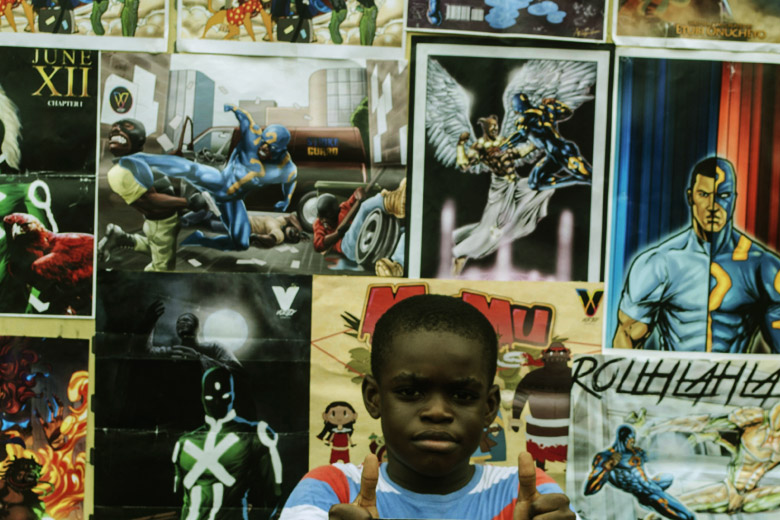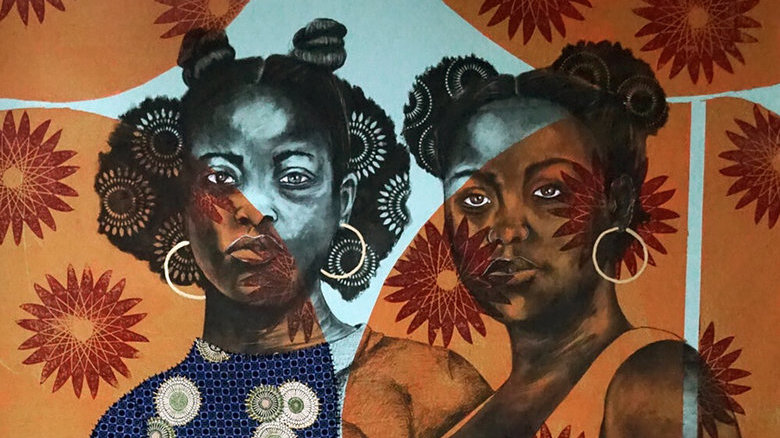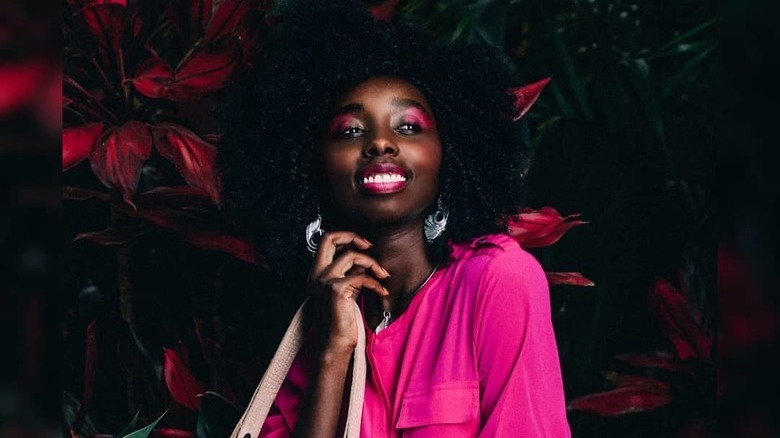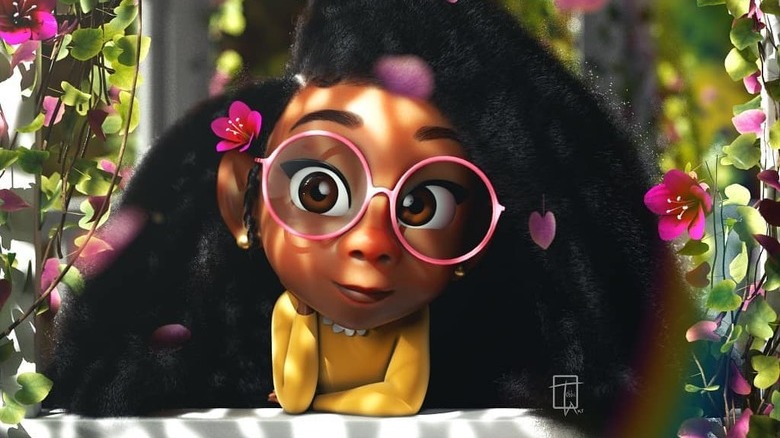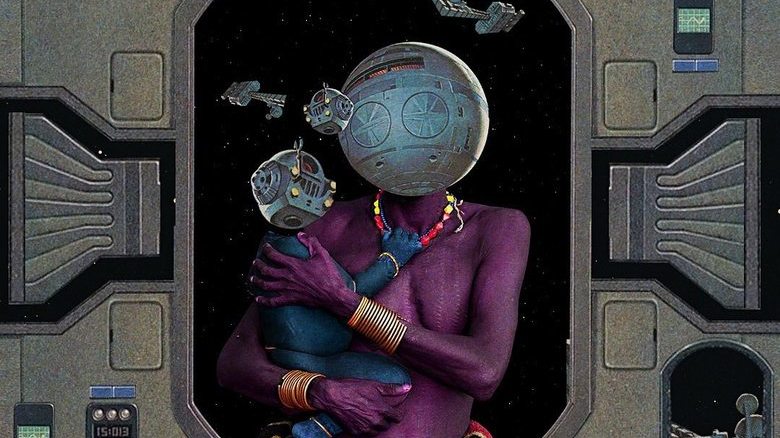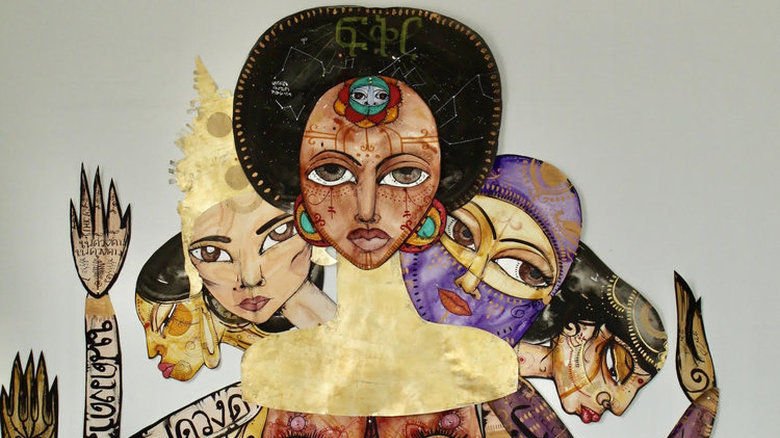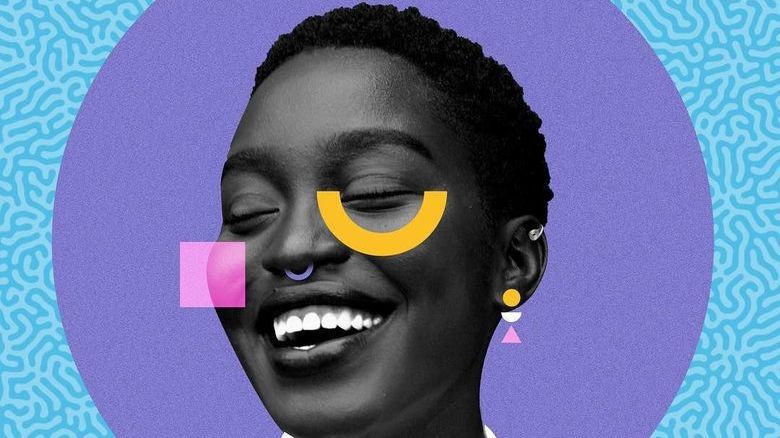Vortex: The Nigerian Comics company
Through Vortex Inc., the company he founded in June 2015, Somto Ajuluchukwu wants to rebrand Africa in the eyes of the world. The Vortex umbrella contains a comics publishing house, which is currently the most well-known aspect of the business, but also comprises Vortex Apps, Nguvu Animation and Prima Vista, a social community movement driven by music and lifestyle.
In its first year of operations Vortex Comics has taken off, amassing a growing readership for a range of titles which, amongst others, imagine a dystopian Africa in 6039AD (Wrath House) and follow the tale of a masked vigilante who acquires powers when an ancient Yoruba deity possesses his body (Strike Guard). They are dynamic stories made to resonate with an African audience, and perhaps pique the interest of international readers to consider Africa beyond the tired tropes and clichés that surround the continent.
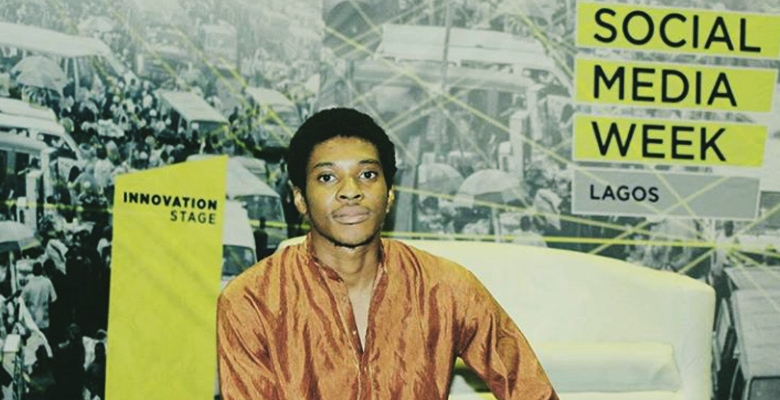
June will mark one year since Vortex launched. What were you doing in the years prior to and leading up to founding the company?
Yeah! It seems just like yesterday to be honest, time has flown by and I must admit it’s been both a turbulent and magnificent year, we have learnt so much, we have grown so much, we have lost some and won some and in every single phase of the experience learning has been an outcome. I’m blessed with such a loyal and amazing team (Mike, Chike, Eedris, Bamidele) and a large community of supporters, whom if I start to mention you’d need an infinite scroller to finish reading the interview. Vortex is a culture that has been the product of everyone who has cared to imagine.
Before Vortex, there was N.O.W (Natures Own Wonder) – a development and design company which creates digital solution for everyday lifestyle. I founded this company from a deep passion for the way people interact with society, themselves and the products around them. We’ve done some amazing things with WeChat, Chocolate city and some established companies here in Nigeria. Before that I worked as a content executive at Starfish Mobile, an investment banker at Zenith Pension Custodian and a design connoisseur at Dieu Puissant Nigeria LTD.
My journey to Vortex started from a hunger to share the African culture and stories with the world and imbue those stories within us as Nigerians and Africans at large. I can’t say for sure how it started, I kind of just began after an inspiring art exhibition at Victoria Island in Lagos. Vortex kicked off as a blog on arts, comics and cartoons initially and then we started our first original content which was Town Crier, a 2 minute animated short. We’ve just grown from there, it’s amazing what we have been able to achieve in this time period.
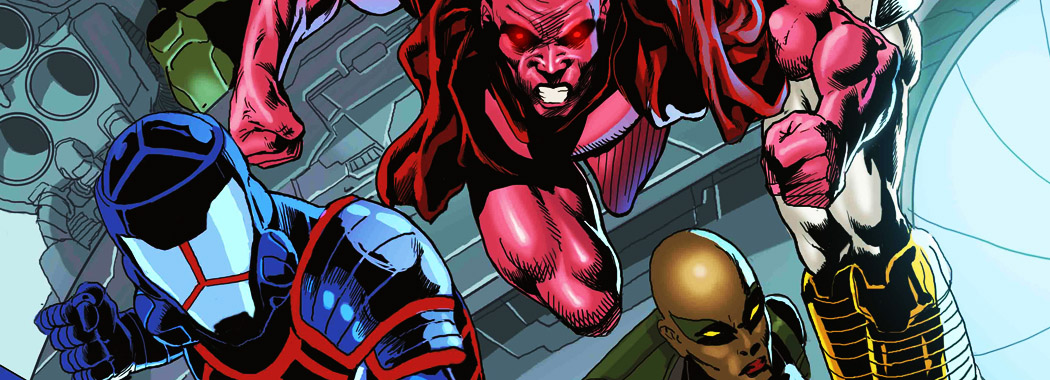
In light of the growing dialogue around representation, why is it important to you to champion stories rooted in African culture?
African culture isn’t just an angle or spearhead slogan of Vortex Comics, African culture is Vortex Comics. That’s what all our ideals are surrounded by, that’s what we work tirelessly for. Growing up I was influenced by and learnt a lot about the West, Europe and Asia from their content and media. I want people across the world to learn about Africa as well, and I want to represent Africa as she deserves; imperfect but irrevocably beautiful. This has driven us to not just work with anyone but connect with people who deeply understand and share our vision. It doesn’t mean our comics wouldn’t still have an international appeal, we have actually realised that a huge audience outside of Africa wants to submerge their imagination in African stories and cultural elements.
We want our audience to look at Vortex for who we are, we are not an African version of Manga, Marvel or DC. We are our own entity of traditional and spirit mythology; expressing these elements is important to us because that’s what will make us stand out even on an international scale. The media is also one of the most important elements in rebranding Africa, we want to use our content to restore confidence in Africa and spark a global interest in the mother land.
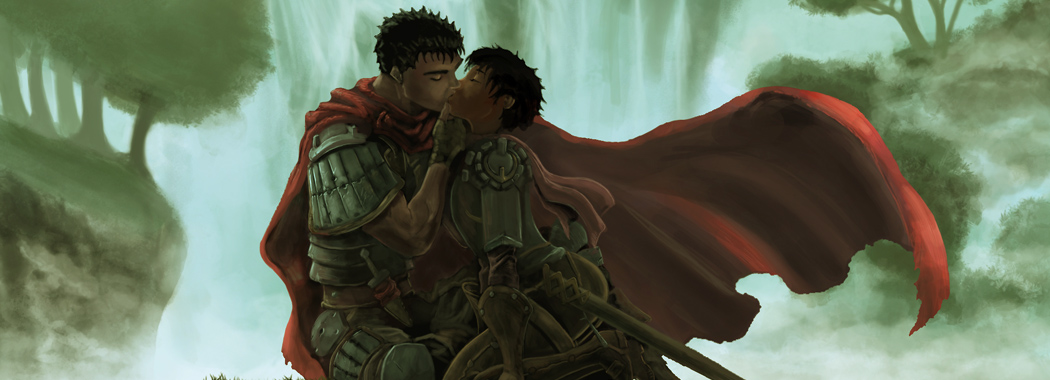
How is Vortex growing Nigeria’s comic book culture?
The industry’s individual players are on super form these days, but we continuously strive to step up the game through innovation and hard work. It’s been close to one year and our growth has shocked the entire industry, people believe we have some immense seed investment but it’s nothing like that – it’s hard work, dedication, daring to dream, a fearless attitude in the face of failure and a hunger for greatness. We have brought a lot of concepts to the game over here in Nigeria (and Africa at large) and when we see people adapting our schemes to their model, that’s how we know we are pushing the culture forward. Contrary to the competitive tyrant I’m painted as by fellow industry players, I want nothing more than to break the ceiling over the industry. We have inspired our peers by our energy, creating comics and cartoons as if it’s a sport, and this attitude makes everyone bring their A game. We have also formed strategic partnerships that have exposed comics to new audiences such as those with LEAP Africa, a conference where we exhibit our projects and speak on creativity to thousands of kids via live cam, as well as our community development events with PRIMA VISTA.
What’s the creative industry in Nigeria like, particularly in the fields of graphic design, illustration and animation?
The industry has a wealth of talent but little funding and support from governmental and private bodies. Still, the industry has grown immensely in the past decade – investors and businesses are slowly beginning to see the ignored gold mine. Design agencies here in Nigeria are beginning to win loyalty of clientele from the usual South African service providers, Nigerian comics are getting noticed by the foreign and local media, animation would have been better with more studios wanting to collaborate and strike reasonable deals with each other rather than choke themselves out with 30 second skits. The investors here in Nigeria and Africa just need to get their noses out of agriculture and crude oil for 5 minutes and look at the future which is content and entertainment, the ones doing it right.
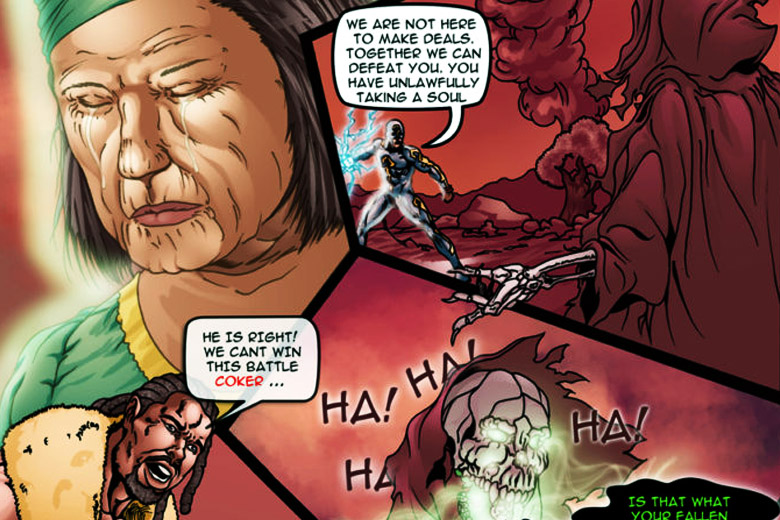
An interesting offshoot of the company is the Vortex Academy. What’s the aim of this and how does it operate?
Vortex Academy is home. What Micheal Kayode (head of operations) and Newman Nwankwo (art director) are doing with the kids is phenomenal, it’s like our real life X Men ‘House of Mutants’. The Vortex Academy is a programme focused on educating teens in animation and digital art, inspiring them to develop an interest in creating from a young age. We know that this is an integral part of growing our industry in a sustainable way, as we inspire more young people to study the craft. It’s ridiculous when you see that currently higher institutions don’t have course in animation and digital art, but you can’t blame that because the Nigerian educational system is built around the economy and the comics and animation industry isn’t at as lucrative a stage yet. However, with initiatives like the VA and a few others we have in the pipeline we hope to shift the culture and change the paradigm. Vortex Academy is currently in partnership with Microsoft and Lego, and we hope to train over 400 kids in digital art and animation by the end of the year.
What does a typical day of work for you and the core Vortex team entail?
The day always starts with us talking about our weekend (or the previous evening), things we watched, comics we read, we generally just vibe on geekiness to pump our creative juices. Next we do a recap on where we are with our projects and get right back into them, we often take time out to zone in on what other creative companies are doing and pick out useful tips or gossip about what they do wrong (yes…we are human and do this with joy). Although it’s a fun and creative environment we run things quite professionally. Vortex is a small team that operates in various departments, we divide the labor in such a way that each team member compliments the other and drives efficiency with ease. It’s can be a crazy job but with the right people you never want to stop.
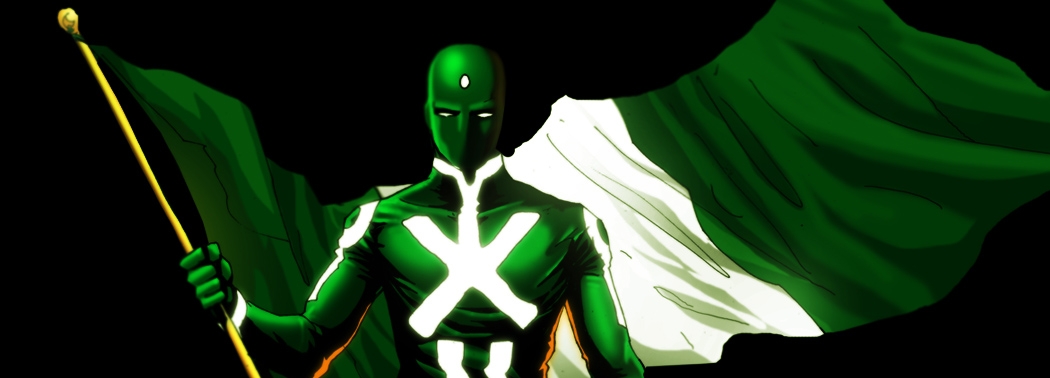
What are the biggest challenges you’ve been faced with since starting the company, and how have you overcome these?
Money and loyalty!
Money: Publishing four or more comic books monthly is quite a bone breaker when not funded. It’s hard when sales are not as high as you would hope but you can’t stop because the readership is growing and you can’t afford to let them down or leave them hanging for too long. Our millionaires in this part of the world need to put the brakes on agriculture and oil investment and face entertainment, it’s a gold mine waiting to be harnessed and the time is now.
Loyalty: The idea of Kickstarter, Patreon or any other crowd funding platform majorly used in the West/Europe was fertile because of the loyalty of consumers, they see a product and genuinely want that to continue. Africa has a problem of “imported consumption”, locally produced content and products are always secondary, our imagination and consumption patterns are slaves to brands made in America. I think it’s high time Africa begins to consume and celebrate things made in Africa, that’s why at Vortex we put quality and love into every stroke of the pencil or cycle of animation, we want kids to read a Marvel comic alongside a Vortex one, and pick ours instead because the quality is on par and because they see elements in ours that tells their story and resonates with their culture.
Alternatively, what are the biggest rewards of doing what you do?
Well, knowing that we can make a living by doing this is a thrill for me, it’s a dream come true. Also the look on a kids face when the characters ignite their imagination gets me teary eyed all the time. I know there is a chance for that investor to finally see where exactly this movement is going and just how massive it will turn out to be. Another is when people like you notice us by chance and give us a platform to share our fears, dreams and aspirations. The readership on Wrath House and our titles of recent rocketing out of the blue has given us such a pump, we know work knowing that upwards of 9k people are counting on the next issue to meet their expectations.
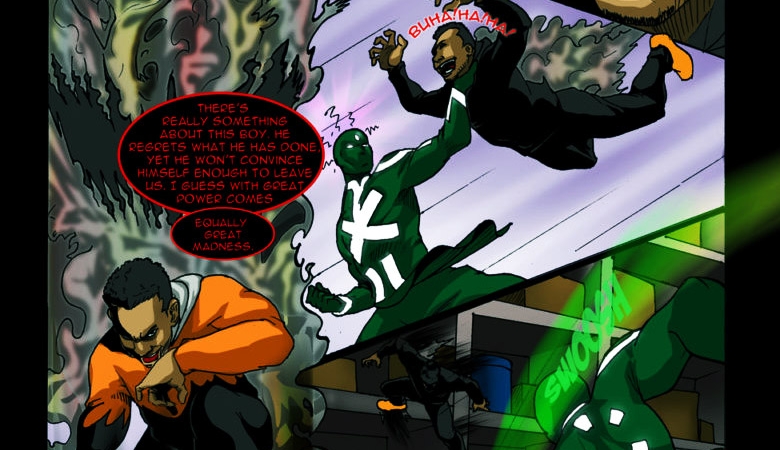
Which new releases and projects are you currently working on?
Oh yes, we have Agabara (with our first female lead character) coming through as well as the follow up issues on Sannkofamaan and the long held back Mumu Juju. We also have a few surprise titles, let me give you a few spoilers: Our art director is finally breaking his creator silence with his first title called Kirija, which exposes you to the dark magic and intricate religion of the masquerades with the contemporary feel of modern day Nigeria. That one might jump right out of the pages. Other than that, we’ve been working on something behind the veil and have a huge announcement coming up at the VEXPO 2016 (Vortex Expose) and Lagos Comic Con this September.
How can we get hold of Vortex titles available outside of Nigeria?
We have a website, a blog and an ISSUU account so our comics are available across the world. The internet makes the world a much smaller place than we think. In print we are still looking into widespread distribution deals once we have jumped up our production quota, which would be a huge revenue step because we know our comics would do quite well in the States.
What are your long term goals with Vortex? Where do you see yourselves a couple decades down the line?
Just the thought of it makes me want to never close the lid of my PC. We want to become an iconic African franchise that defines our generation and the generations yet to come. We hope to have games of our characters, build a cinematic universe, dive into performance arts such as stage plays, host exhibitions across the world, produce merchandise…the list is endless. We have huge dreams, and with the right people and platforms I believe Vortex will be for Africa and the world what Disney, Marvel and the rest are for us currently. We hope to this differently as well…getting a leap ahead of what these corporations are doing currently.
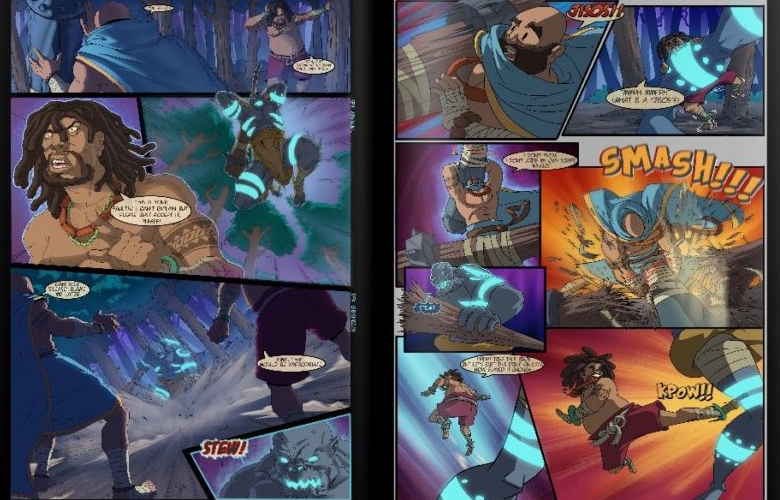
Follow Vortex on Facebook, Twitter and Instagram.
